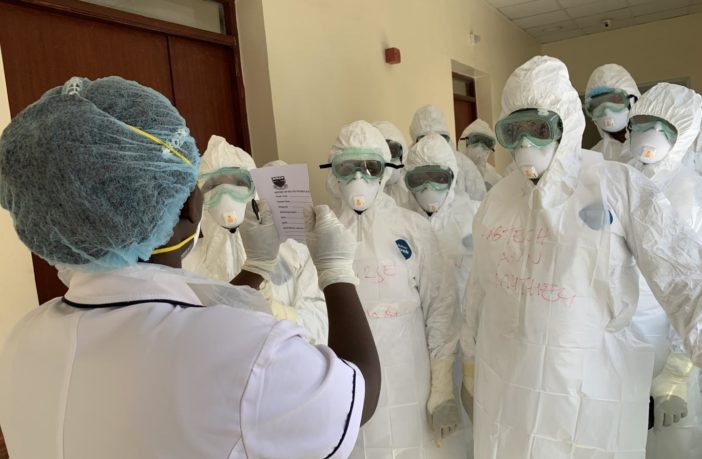The World Health Organisation (WHO), Regional Office for Africa in Brazzaville, Congo, says the number of Coronavirus cases in Africa is now over 312,000 while the global cases are now over nine million.
The UN health agency gave the update on its official twitter account @WHOAFRO on Tuesday.
The agency said: “There are over 312,000 confirmed COVID-19 cases on the African continent – with more than 149,000 recoveries and 8,200 deaths.’’
WHO reported the largest single-day increase in Coronavirus cases over the course of Sunday, registering more than 183,000 new infections in 24 hours.
“It seems that almost every day we reach a new and grim record”, said Director-General, Dr Tedros Ghebreyesus, at a news conference.
“Some countries continue to see a rapid increase in the number of cases and deaths. Others that had successfully suppressed transmission, are now seeing an upswing as they reopen their economies.
“All countries are facing a delicate balance between protecting their people while minimising the social and economic damage.
“It is not a choice between lives and livelihoods, Countries can do both”, he said.
According to him, they must be “careful and creative” in finding solutions so that people stay safe while getting on with their lives.
He also urged countries to double-down on the fundamental public health measures that are known to limit spread: finding and testing suspected cases, isolating and caring for the sick, tracing and quarantining contacts, and protecting health workers.
“These measures can only be effective if each person follows recommendations for physical distancing, hand washing and mask-wearing.”
While data are preliminary, the director general said the recent finding that the commonly-available steroid dexamethasone had a life-saving potential for critically ill COVID-19 patients “gave us a much-needed reason to celebrate”.
“The next challenge is to increase production and then quickly and equitably distribute dexamethasone worldwide, focusing on where it is needed most.
“Demand has already surged following trials in the United Kingdom,” he said.
He said that fortunately, dexamethasone is an inexpensive drug and many manufacturers worldwide can likely accelerate production.
Ghebreyesus said governments should be guided by solidarity in working together to ensure that supplies were prioritised for countries that have large numbers of critically ill patients and that supplies of the drug remain available to treat other diseases for which it is needed.
“Transparency and constant monitoring will be key to ensuring that needs dictate supplies, rather than means, and that suppliers are able to guarantee quality.
“There is no evidence that dexamethasone works for patients who are only mildly affected, or as a preventative measure,’’ he cautioned.
More broadly, he said WHO would continue to support countries with essential supplies of personal protective equipment and laboratory diagnostics.
“So far, 48 countries had made requests for supplies through the WHO COVID-19 supply portal.
“WHO is shipping 140 million items of equipment to 135 countries, as well as 14,000 oxygen concentrators and millions of test kits,’’ the director general said. (NAN)




